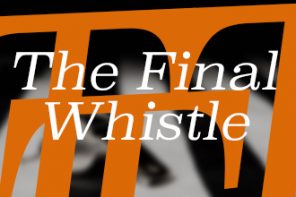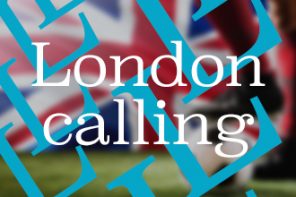It is 30 years ago this month since the zenith of one of the greatest European teams of the 1980s. This may have been a decade dominated by Liverpool, but in 1985 they played second fiddle to their neighbours. That year, it was Everton who won the league, Everton who bested Bayern Munich in the semi-finals of the Cup Winners’ Cup and Everton who went on to lift the trophy against Rapid Vienna. Had it not been for Manchester United, they would have won the FA Cup too. Had it not been for the tragedy of Heysel and the subsequent ban that ruled all English clubs out of European football, they might have gone on to win far more.
Even now, it still saddens manager Howard Kendall. In 1985, English clubs ruled the continent. Between 1977 and 1984, only Hamburg broke a streak of success for the home clubs. Liverpool won it four times, Nottingham Forest won it twice, Aston Villa won it once. It doesn’t take much imagination to see Everton joining them on the pantheon in 1986.
“It’s difficult,” sighs Kendall as he recalls the frustration. “I think that the ban was harsh. When you think about five years… We’d had a very successful Cup Winners’ Cup campaign, we’d won the league, we were looking forward to challenging to be the best team in Europe. We believed we were the best team in Europe. It was just a massive blow for the club and the fans. We were denied the opportunity to be the best, because the Cup Winners’ Cup wasn’t the best. The European Cup was the best and we wanted to go on and win it.”
“I’ve spoken to Peter Robinson, the chief executive of Liverpool at the time, and he said that the club had complained about the state of the stadium before the game, they’d complained about the lack of segregation for the fans. Nothing was done.”
That Kendall was even able to win one title is extraordinary when you consider how close he came to losing his job in 1984.
“It wasn’t going well,” he admits. “Gates were down to 13,000 and that puts real pressure on the manager at a big club. There were ‘Kendall Out’ banners in the stadium, there were ‘Carter Out’ banners for the chairman Philip Carter. My house was graffited, the garage door was painted. So you did feel under pressure. Even the house was painted with ‘Kendall Out’. The garage door. On a personal level it felt awful. I had kids. They were coming down to school and looking at it…”
The mission was not an easy one. Under Harry Catterick, Everton had won the title in 1970 with Kendall, Alan Ball and Colin Harvey making up the famous ‘holy trinity’ at the heart of the team. But if Everton supporters though that that marked the start of a new era, they were sorely mistaken. Three consecutive bottom half finishes did for Catterick and, while Billy Bingham and then Gordon Lee were able to bring about a degree of improvement, the trophy cabinet remained bare. Lee was sacked in May 1981 after another disappointing campaign and Kendall was brought in from Blackburn Rovers, where he’d won promotion as player-manager.
Kendall actually made four first team appearances in his second spell at Everton, but very much against his better judgement. “I wanted them to remember me when I was there first time. Not when I was getting old.”
Six years after Kendall’s first title, Graeme Souness returned to Liverpool, attempted his own rebuilding job and failed horribly. Kendall nods grimly at the comparison and admits that thoughts of his legacy weighed heavy on his mind in the difficult days.
“You didn’t want to go out and lead a side struggling,” he says, shaking his head. “You don’t want to leave it like that. But full credit to the board of directors. Philip Carter was the chairman and he came out and gave me a vote of confidence. Sometimes that means it’s bye bye time, but he said really meant it. He stuck by me.He was a superb chairman and very loyal to me. He had a very high profile job himself. I would inform him if I wanted a player. I knew if the money was available I only had to tell Mr Carter that I wanted someone and he would just say do it. He didn’t interfere.”
“When I went to Everton I said that the objective was to catch up with Liverpool and then hopefully overtake them. And we did that. Not just one season, we did it twice. But the first one was the most satisfying. The first one is the one. They can’t take that away from you. You’re always going to be remembered for that.”
“I came in and made a lot of changes, some good, some bad. Some didn’t work out, but we got to a certain level. We came eighth in the first season which was progress.”
Kendall bought young, talented players like Kevin Sheedy and Peter Reid, but it took time for them to click. Two wins from the first eight games of the 1982/83 season saw them plummet to 17th place in October. They rallied briefly with three straight victories, but another grim run of six games without a win through November dropped them back into the mire. Six wins from their last eight games lifted them to a respectable 7th place finish, but then it all went wrong again the following season. With still more new faces in the side, they couldn’t secure back-to-back wins until late January. Booed off the pitch on New Year’s Eve by an angry and depleted Goodison Park support of 13,659, it looked as if Kendall’s time was up.
“I think the cups runs really turned it around,” says Kendall. “We stayed in the League Cup right to the final. We drew with Liverpool at Wembley and were unlucky not to win the replay. But we beat Watford in the FA Cup Final and I think that gave the fans a bit of hope that something was happening.”
“We had young players of tremendous quality,” he says, “but they weren’t expressing themselves in games. I brought in Peter Reid and Andy Gray and when they were both in the team, things improved. They were fantastic in the dressing room. They were characters, they brought character into a dressing room where possibly it had been a bit quiet. You need balance. That’s my favourite word. Balance. It’s so important. I learned that from Harry Catterick. Not just to buy players, but to buy characters.”
Reid had suffered injury problems at Bolton Wanderers, but Kendall was prepared to take a chance on him.
“Peter was passed by the medical people. I remember him playing in a reserve team game at Newcastle and the knee went again. I thought well, this is a bad signing. But he recovered. He learned not to go into block tackles because that knee was very weak. He’d pinch balls, nick balls. He’d intercept balls, rather than going into the tackle. He was a fantastic signing. Andy Gray was fantastic too. I had to stop Andy from training in midweek. He’d be blasting balls in the back of the net and I’d be saying, don’t be doing that, get ready for the weekend! He was the same in the matches. I remember a game at Notts Country when he went into a diving header at a height of about six inches. They were fighters. They got to a point where they thought they were the best and I think if you’ve got that mentality, if you can go out and believe that, then you’ve got a hell of chance.”
Typically, Everton started the 1984/85 season with two straight defeats. But Kendall wasn’t concerned.
“We lost to West Bromwich Albion and Spurs. Oh, the pressure was on then. But then we went to Chelsea and won 1-0. That was it. You don’t panic. You analyse the game. You ask yourself, were they better than you? Did you make mistakes? The ability of the team and the willingness of team was proved that day at Chelsea.”
After Chelsea, the wins came thick and fast as the team grew in confidence through the latter stages of 1984. Kendall laughs off suggestions that the introduction of big characters might have caused problems in the dressing room.
“No!” he scoffs. “You don’t let them undermine you. If they caused trouble, you sold them!”
However, there were other methods of keeping a degree of control over his players. Defender Pat van den Hawe was from London, but it didn’t take him long to build a reputation on Merseyside for heavy drinking.
“Did I have any problems with Van den Hauwe?” laughs Kendall. “No, I just went out with him! My idea of management was I treated players how I would have wanted to have been treated. That wasn’t the way I’d always been managed. It certainly wasn’t the way that Harry Catterick had been. Harry was distant. You didn’t know Harry at all. Even his own staff didn’t like him. That tells you everything. He’d just peek out of the blinds in his office and watch the training. We very rarely saw him.”
No-one saw Everton for dust in 1985. Having wobbled over the Christmas period with a run of one win in five games that dropped them down to third, they stepped up a gear on Boxing Day and never looked back. Between a Derek Mountfield-inspired win over Sunderland on December 26 and a Derek Mountfield inspired win over West Ham on May 8, just four points were dropped in 18 games. Everton finished 13 points clear of Liverpool, despite losing three of their last four fixtures as their attention shifted to their European adventures.
Kendall stayed on at Goodison Park, came within two games of winning the double the following season (that honour went to Liverpool instead) and then won the league a second time in 1987. But with no European football on offer, he grew disenchanted and left for Athletic Bilbao.
“Would I have stayed if we hadn’t been banned? Probably, yes. We would have been involved in Europe again. But when your top players are allowed to leave, as Trevor Steven and Gary Stevens did, it takes some rebuilding.”
“One thing that would have softened the blow would have been, after the five years, whatever position Everton were in, they were back in Europe. That should have been automatic. A guaranteed place when the ban was lifted. But no-one fought hard enough.”
If you fancy a bit of nostalgia, here’s a BBC Sportsnight profile of Everton’s 1984/85 season, narrated by none other than David Icke.
And if you click the link below, you’ll find Howard Kendall’s fine autobiography, written with the excellent James Corbett.






